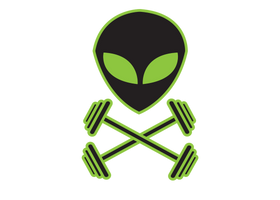CICO stands for Calories In, Calories Out. This diet promises weight loss by consuming fewer calories than your body burns in a day.
So essentially, you can eat whatever you want as long as the number of calories you eat is less than the number of calories you burned. Now it may make a bit more sense and even sound familiar, right?

While the CICO diet may sound new at first, but the whole concept isn’t new at all. If you are tired of new fad diets, then the CICO diet may be for you. It isn’t actually a diet but more like a strategy to help people lose weight.
Experts agree that the idea behind CICO is true: if you eat less than you burn you will lose weight.
A benefit of the diet is that it does not eliminate any type of foods, which can make it an easier diet to start than many other restrictive ones.
Despite that, many experts and dietitians believe that the CICO diet doesn't really work. Let’s find out why!
The CICO Diet May Make You Nutrient Deficient
The quality of your calories should be just as important as how many calories you consume.
Because the CICO diet emphasizes only calories, many who follow the approach end up making unhealthy choices. This results in insufficient nutrients, vitamins, and minerals your body needs to feel good and stay active, focused, and healthy.
In one pilot study, 104 obese subjects underwent a low-calorie formula time over a period of three months. It was found that their micronutrient levels remained low or became even lower after the diet.
For example, micronutrient levels of Vitamin C, zinc, and lycopene had significantly reduced. These micronutrients play an important role in boosting your immunity, healing and repair, and protecting oxidation–respectively.

The CICO Diet is Unsustainable

Counting and tracking calories can be hard to stick to and may eventually lead to burnout.
It requires a lot of math, dedication and discipline. Sometimes, it can even mean sacrificing your social life or other experiences and activities.
This is when diets like this begins to trigger obsessive and disordered eating behaviors.
The CICO Diet May Lead to Disordered Eating Behaviors

Following the CICO diet may work in a healthy manner for some, but not for others. This is because the diet may promote obsessiveness surrounding one’s intake and could lead to unhealthy eating patterns.
Especially because the CICO diet is straightforward, it is easy to know whether you are on the right track or not.
In fact, Dr. Steven Crawford, co-director of the Center for Eating Disorders at Sheppard Pratt in Maryland says, “Counting calories is a pretty black-and-white diet behavior: Either you meet your caloric goal or you don’t.”
Hence, the obsession and perfectionism exacerbates even more when one does not meet their daily caloric goal.
Not to mention, focusing your entire diet around numbers takes away the whole joy and experience of food. In fact, it discourages connecting with our bodies and being mindful.
The CICO Diet Doesn’t Take into Consideration Other Factors Involved in Weight Regulation
The CICO Diet fails to account for the many factors that influence weight loss.
Firstly, it fails to account for the different macronutrients that influence the change in body composition.
For example, protein has a large thermic effect of food (TEF) in comparison to dietary fat and carbohydrates. TEF is the energy expenditure that comes from digestion, absorption, and disposal of the nutrients you eat.
For this reason, if you follow the CICO diet and consume a lot of carbohydrates, you will be burning less than if you ate mostly protein.
Secondly, it fails to account for muscle gain. For instance, you may lose 10 pounds of body fat on the CICO diet but gain 10 pounds of muscle. Yet, many will believe that they aren’t losing weight based on the scale.
This is why when you are tracking progress, it is crucial to look at how you feel and look because a pound of muscle is denser than a pound of fat.
There are also hormone theories on weight regulation. These theories attribute hormones, such as insulin and leptin, as the main drivers of obesity.

The CICO Diet May Slow Down Your Metabolism
When you are on a big caloric deficit (eating significantly fewer calories than you are burning), your metabolism may actually slow down and lead to the exact opposite of what you are aiming for.
Your metabolism is how fast your body processes food. So initially, you may lose some weight, but over time, your metabolism is going to take a deep dive. This is why many individuals who follow diet plans end up gaining back their weight.
And unfortunately, a slower metabolism can be permanent. For example, one participant from the “Biggest Loser” who lost weight during the competition ended up regaining over 100 pounds after the show.
He now has to consume 800 calories per day less than the average man his size just to maintain his current weight.
Bottom Line
While the premise behind the CICO diet isn’t wrong, the approach is.
Of course, it is good to have a sense of how many calories you are consuming if you are looking to lose weight, maintain your weight, or even build muscle.
However, it is also important to prioritize the quality of the foods you eat and ensure it comes from whole foods, including a balance of carbohydrates, fats, and protein. In the end, the best diet is one that is sustainable, flexible, and enjoyable.
Personally, I have found listening to my own internal hunger and fullness cues, also called intuitive eating, the best approach. Just remember, there is never a one-size-fits-all approach when it comes to eating.
Join the Invasion!
This Anabolic Aliens membership will grant you access to workout classes, rehab programs, diet plans, and more exclusive content to help you achieve sustainable success!










